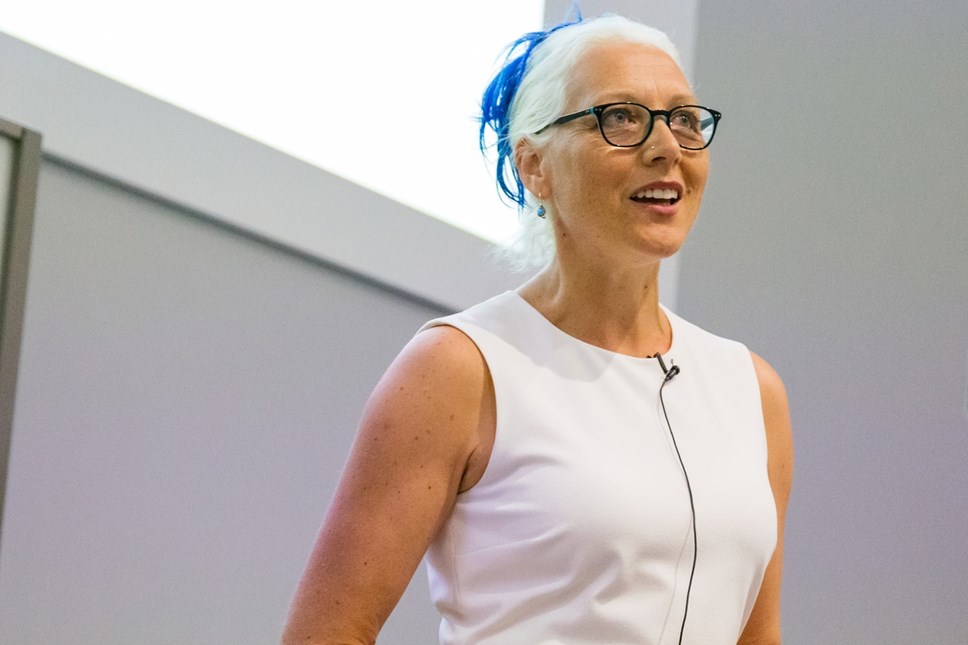
Health and inequality expert advising government on COVID response
An academic at the University of Cumbria has contributed to a horizon scanning report for the House of Lords COVID-19 Committee inquiry into ‘Life beyond COVID’.
Kaz Stuart, Professor of Social and Health Inequalities at the Centre of Research for Health and Society at the university was one of 350 experts who shared what they think the implications of the COVID-19 pandemic will be over the next two to five years.
Areas of concern raised by the experts included work and employment, health and social care, research and development, society and community, the natural environment, education, arts, culture and sport, infrastructure and crime and justice.
Kaz’s contribution was summarised in the health and social care section of the report, which suggested that there is likely to be a rise in loneliness, depression and anxiety and the life expectancy gap between the richest and poorest could widen.
Speaking about her submission, Kaz felt reassured to have contributed to the government's response, she said:
“The government’s drawing from a wide interdisciplinary evidence base and their publication of the results is very heartening, especially as our research is informed by so many members of the public. In that respect, our research has enabled people to speak directly to government.
“The icing on the cake will be to find out how this evidence is acted upon in the coming months.”
COVID research
Kaz’s research concerned the impacts of lockdown and the support people felt they required to recover. What is unique is that respondents could reply in any way they liked so the research is holistic in nature, presenting the physical, psychological and social effects of lockdown.
In total 490 people across the UK responded to Kaz’s call for stories and Healthwatch Cumbria, a body that helps local government listen to its healthcare users, provided 301 more.
In addition, children’s education charity Edukit, elicited a further 11,275 responses from children about the impact they felt from the closure of schools and the burden of learning at home.
Mental health issues were prevalent in many of the responses. 84% of respondents reported a deterioration in their mental health, with generalised anxiety most frequently cited as well as the emotional state of worry.
Other negative effects included inability to sleep, loneliness and isolation but also social effects such as increased caring responsibilities, financial concerns as well as limited access to resources such as food for the shielding and vulnerable.
The research makes several recommendations, including encouragement for people to pursue healthy activities such as good diet, exercise and time outdoors.
Access to pop up health clinics and holistic therapies such as ‘mindfulness’ and social prescribing as well as increased help and support for those most adversely affected such as those having to shield, living in poor housing, are unemployed or recovering from COVID.
Kaz continued: “Much has been made in the media of the financial support the government is offering to offset the negative impacts of the pandemic but not much is being done to counteract the vast and differing psychological and social effects. My research makes it clear that this is what’s lacking and so I am hopeful that my recommendations will go forward to make a positive impact.”
Next steps for Kaz include deep-dive analysis into specific aspects of the research including those who listed themselves as vulnerable or shielding.
The intention is to present the investigation to Ministers at Cabinet Office in the coming weeks, who have expressed interest in the research.
Kaz remains an expert advisor to government and is sharing her research with the north eastern arm of Public Health England, Public Health Intelligence North of England.
This news comes as Kaz and her team have secured over £173K for new research projects over the next two years.
One of the projects is a nine-month youth action project in partnership with Carlisle Youth Zone, William Howard School and Northumbria University. Young people will research the health and wellbeing concerns affecting them and their peers and what support services they require.
The other is a 15-month project working in partnership with Susan's Farm in North Cumbria and the Children's Foundation in the North East and Northumbria University. In which they will explore the benefits of agricultural and horticultural projects on young people's wellbeing.
ENDS
Pictured: Professor Kaz Stuart
